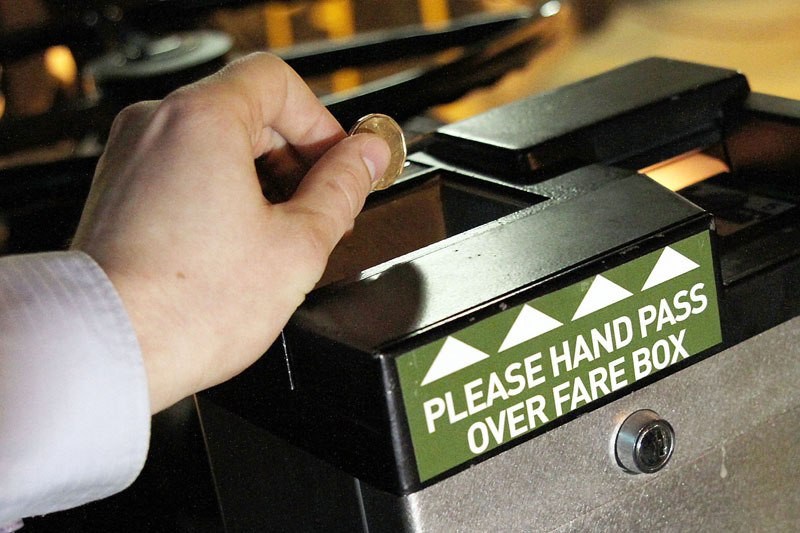THUNDER BAY – Thunder Bay’s city council found room for some small, but hopefully impactful increases to the 2021 municipal budget Wednesday night, as it nears the end of a month-long review.
Councillors voted to freeze transit fares and boost budgets for the Waterfront BIA and city strategies on food, poverty, and aging at a Wednesday night meeting.
Increases were balanced in part by small cuts to the Thunder Bay Public Library and Community Economic Development Commission (CEDC).
While the increased spending was marginal, it reflected a desire to drive forward progress on key priorities despite the COVID-19 pandemic.
The proposed municipal tax levy sat at 1.98 per cent (1.75 per cent after growth) after Wednesday’s changes, ticking up by just a twentieth of a percentage point.
Suggestions to cut more deeply in the face of unpredictable COVID costs were rejected. Mayor Bill Mauro argued council had already taken hard choices, notably directing administration to hold the proposed levy increase to two per cent, after growth.
That starting point was already well below average despite COVID-19, Mauro pointed out – indeed, the levy has increase by an average of 2.39 per cent a year since 2012.
“For the community that’s following this debate, it’s important to appreciate we’re in a pretty good spot, relatively,” he said. “When I hear people say we need to make cuts, we did already, and we’re making more now.”
Transit fare debate
The impact of freezing transit fees will be largely symbolic, saving riders (and costing the city) only a projected $68,000.
The proposed budget already kept cash fare at three dollars, but would have hiked other forms of payment, like single-ride, 10-ride, monthly, and seniors’ passes, by between 1.5 and three per cent.
Coun. Andrew Foulds initially proposed a pilot project involving a monthly fare-free day, an idea originally floated by Poverty Free Thunder Bay as part of a transition toward complete free transit.
“What I’m proposing is a small step toward that big idea,” Foulds said. “It’s incremental, and I think some people aren't particularly happy at such a small step – but it is a step forward.”
Several councillors expressed openness to an eventual move to fare-free transit, but limited support for the monthly pilot day.
Some worried the free days would cause crowding, exacerbating COVID-19 risks. Others said it simply wasn’t the most effective way to reduce costs for riders, given that only the 15 per cent of riders who pay with cash fare or single-ride passes would benefit.
“I think there are much better ways we can target our investments,” said Coun. Brian Hamilton, noting the estimated $115,000 cost of monthly fare-free days dwarfed that of cancelling this year's proposed fee increases.
Building on the foundation of a planned electronic fare management system using smart cards, the city may be able to reduce fares and offer more flexible options as early as 2022, said transit manager Brad Loroff.
Good news for city savings
Over half a million dollars in new provincial COVID funding for Superior North EMS will help chip away at 2021 pandemic costs, projected at over $8 million.
The city plans to tackle those costs without increasing taxes, using $4.5 million in federal-provincial COVID relief funding left over from 2020, with the remainder coming from its stabilization reserve.
That “rainy day” fund currently sits at $12.3 million, reported city treasurer Linda Evans.
Boost for Waterfront BIA, city strategies
Council found room for increases of $10,000 to the Waterfront BIA and $15,000 each to city strategies on poverty, food, and aging.
“This is money well spent,” said Foulds of the BIA increase. “This is a group of small businesses that do unbelievable volunteer work, partner with community groups to improve the [downtown], make infrastructure investments.”
BIA members had supported an equivalent increase to the levy imposed on area property owners, which matches funding from the city.
The Fort William BIA, by contrast, requested a $30,000 reduction to its budget, as owners there preferred to reduce levy costs during COVID-19.
City trims library budget
After initially proposing a 0.3 per cent increase, the Thunder Bay Public Library offered to "give back" $50,000 to the city on a one-time basis, which will be used to cover COVID costs.
The library racked up a large surplus in 2020, largely from temporary COVID-19 layoffs. It gave back $250,000 to the city last year for that reason, and will still have enough left over to cover over $200,000 in projected COVID costs in 2021.
Deeper cuts rejected
Coun. Brian Hamilton sought to cut more, moving to implement six cost-saving measures from a list of 40 provided by administration to reduce the impact of COVID costs on the stabilization fund.
"Even though it’s a rainy day [now], I want to be mindful of rainy days in the future," he said. "I want to be mindful of the tough work in the years to come that could be related to climate change, the global economy, or [other] unforeseen economic problems."
However, his colleagues approved only one of the six, a $12,000 reduction to the CEDC’s COVID budget the organization said was no longer necessary.
The other proposals would have cut over $600,000 from the CEDC, Clean, Green and Beautiful committee, and Churchill Pool (closing it temporarily for the year).
Council approved $100,000 for a contentious Thunder Bay letter sign in the budget, but with the catch that it must come back before council for final approval. Several councillors expressed deep misgivings about the project.
The final budget review meeting takes place Feb. 2.
Citizens will have the opportunity to provide feedback at a public meeting on Feb. 4. Requests to make deputations to council must be received no later than 4:30 p.m. on Jan. 29. More information is available at the city’s website.
Ratification of the budget takes place Feb. 8, the last chance for councillors to propose any final changes.
